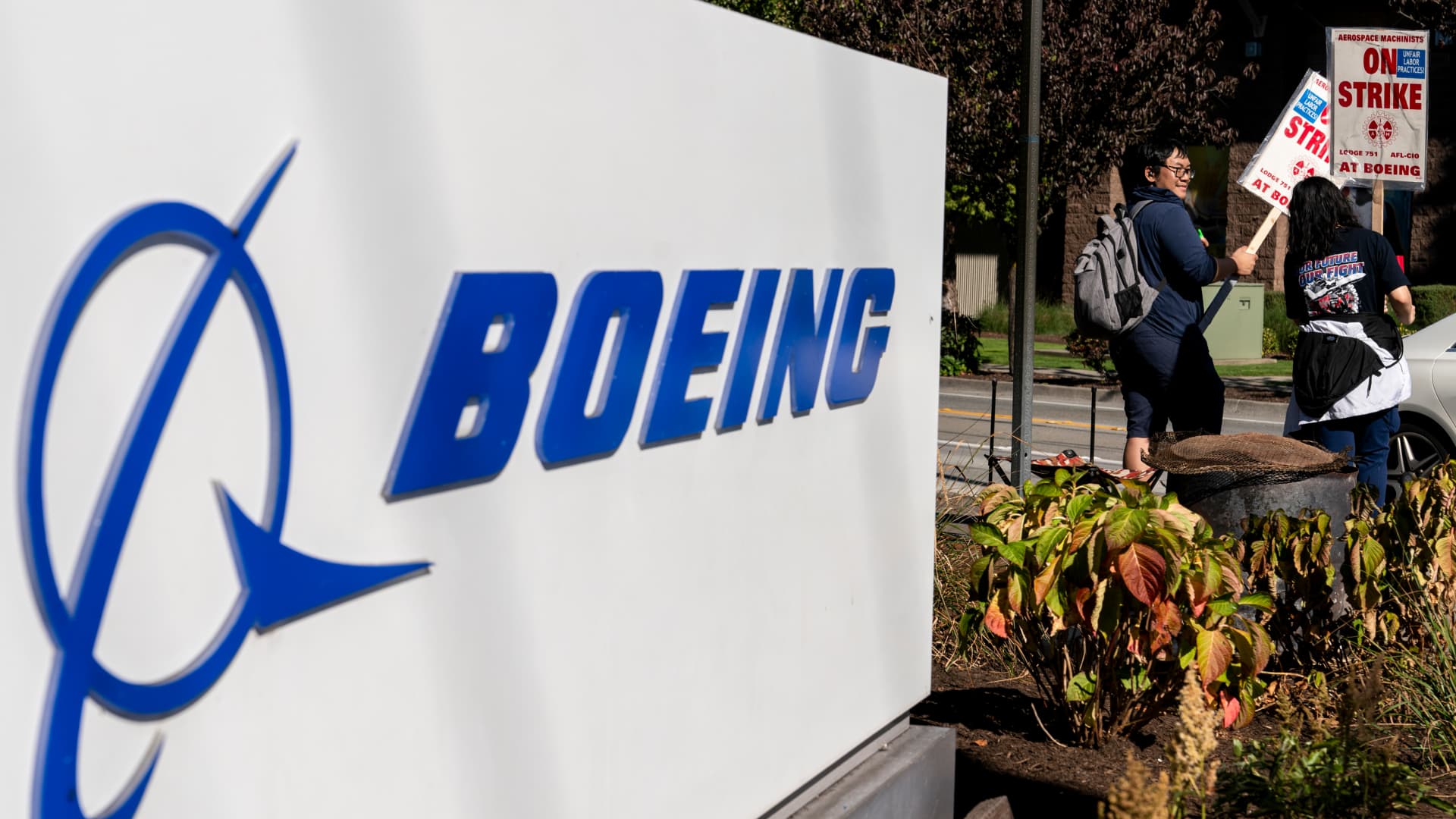Workers gather outside a Boeing Co. manufacturing facility. during a strike in Renton, Washington, USA, on Thursday, October 3, 2024.
David Ryder | Bloomberg | Getty Images
BoeingNew CEO Kelly Ortberg said the company needs to become leaner and improve quality, a vision he laid out for the troubled planemaker ahead of his first quarterly call with analysts on Wednesday. At the same time, thousands of striking Boeing machinists will vote on a new labor contract, and Ortberg said he was hopeful of an agreement.
Boeing reported a loss of more than $6 billion for the third quarter, its biggest since 2020 when the pandemic halted most demand for planes and its best-selling plane was grounded after two crashes.
Boeing had released preliminary third-quarter results earlier this month, showing revenue of $17.8 billion, down less than 2% from a year earlier, as well as a loss of $9.97 per share and a cash outflow of 1.3 billion dollars. It said it ended the third quarter with $10.5 billion in cash and marketable securities.
Here’s what the company reported versus what Wall Street analysts polled by LSEG, formerly Refinitiv, expected:
- Loss per share: $10.44 adjusted. That may not compare to an adjusted loss of $10.52 expected by LSEG.
- Income: $17.84 billion vs. $17.82 billion expected
Ortberg, a former CEO of Rockwell Collins, took over at Boeing in August, charged with restoring the company’s reputation and eliminating quality problems on planes and other programs. In January, a door plug exploded minutes into an Alaska Airlines flight on a 737 Max 9, and the near-disaster sparked safety concerns from regulators and customers.
“We need to know what’s going on, not just with our products, but with our people,” he said in prepared remarks before the earnings call on Wednesday. “And most importantly, we need to prevent issues from exacerbating and work better together to identify, fix and understand the root cause.”
Ortberg earlier this month said Boeing would cut 10% of its global workforce of about 170,000 people, hinting at a weaker manufacturer. He is expected to face questions on the call about which units or projects the company will consider shedding.
“We need to reset priorities and create a leaner, more focused organization,” Ortberg said in his prepared remarks.
The most pressing issue for Boeing this week is ending a costly labor strike that has crippled its Seattle-area factories, where most of its planes are made. More than 32,000 machinists walked off the job early Sept. 13 after overwhelmingly voting against a contract that included a 25% raise, among other changes. A new proposal, unveiled Saturday, included 35% raises over four years, a higher signing bonus and 401(k) contributions and other improvements.
The strike is costing Boeing $1 billion a month, according to S&P Global Ratings, and reaching a quick end is critical to the fragile aerospace supply chain, where layoffs have already begun.
“We’ve worked hard to find a solution that works for the company and meets the needs of our employees,” Ortberg said.
The deal includes a commitment by Boeing to build its next aircraft in the Pacific Northwest. This has been a sore point for unionized machinists since Boeing moved production of its 787 Dreamliner to a non-union facility in South Carolina.
“Boeing is an airplane company, and at some point in the future we have to develop a new airplane. But we have a lot of work to do before that,” Ortberg said Wednesday.
Analysts are optimistic that the deal will go through. The results of the labor vote are expected late Wednesday evening.
